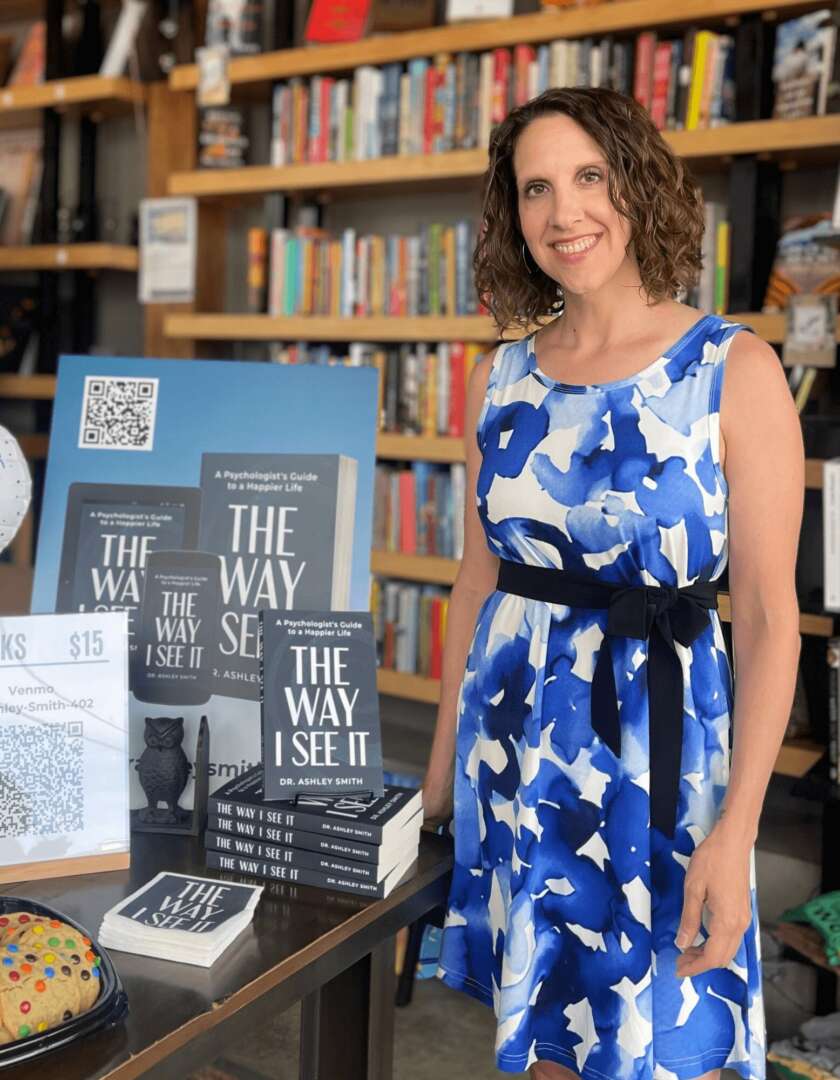We’re excited to introduce you to the always interesting and insightful Dr. Ashley Smith. We hope you’ll enjoy our conversation with Dr. Ashley below.
Dr. Ashley, thanks for joining us, excited to have you contributing your stories and insights. We’d love to hear about the things you feel your parents did right and how those things have impacted your career and life.
At the time, I thought she was being cruel and heartless. There were three pivotal moments during my freshman year of college when my mom forced me to find the courage I didn’t yet know I had. I am 1000% convinced that, without her and those rockstar parenting moments, I would not be where I am or who I am today.
I was a socially anxious teenager who freaked out at the idea of going to college – literally freaked out, yelling and crying on campus. My mom, in her wisdom, knew that I would regret not going, so she bribed me. She agreed to buy me a ridiculous pair of Banana Republic pants I loved in return for me agreeing to go to school for a semester. Sneaky, but effective.
At semester break, my roommate dropped out, and I again freaked out at the prospect of living with a stranger. When I called to tell her I was coming home, my mom calmly asked where I planned to live – with them, obviously. How was I going to pay rent – WHAT?! Rent? I guess I’ll get a job. How was I going to get to work – with my car, duh! You mean the car we pay for? We’re only paying for that while you’re in school, so how are you going to pay for your own car? I realized I couldn’t afford to drop out, so I stayed.
The final nail in the brighter future coffin was when she badgered me into promising I’d go to one meeting of the Freudian SLIPS, an invitation-only club for psychology majors who showed promise. It was designed to mentor us and make us competitive for graduate school. I sincerely doubt I would’ve gotten into UNL – or any doctoral program, for that matter – without Dr. Lammers and the SLIPS, and there is zero chance I would’ve joined that group if my mom hadn’t basically forced me into it.
At each of those points, I was angry and scared. I felt like my mom didn’t understand me and certainly didn’t care about me. I know now that she cared so much that she was willing to endure my adolescent tantrums and genuine distress because she knew what I could do if I didn’t give into fear. I am eternally grateful.

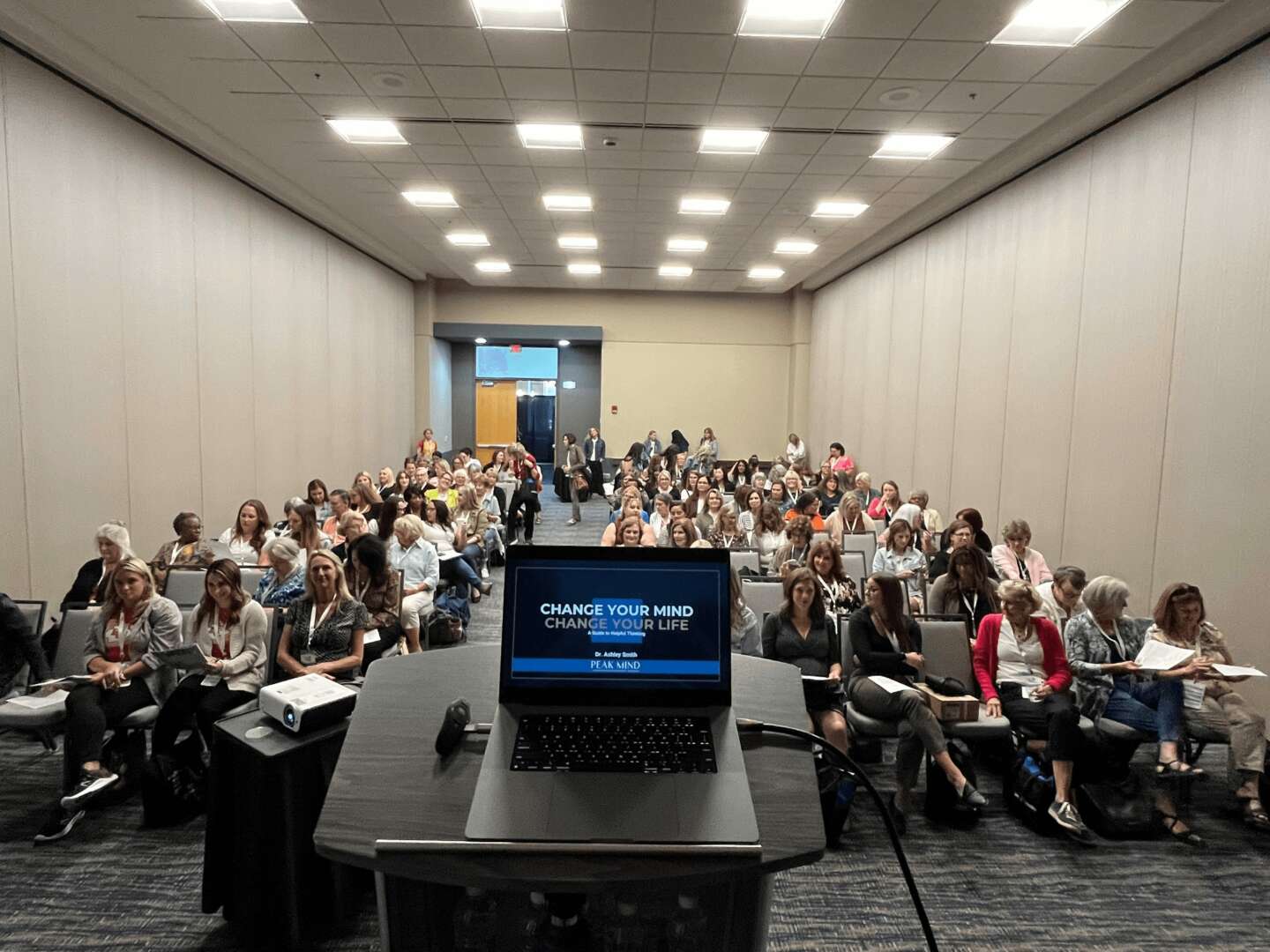
As always, we appreciate you sharing your insights and we’ve got a few more questions for you, but before we get to all of that can you take a minute to introduce yourself and give our readers some of your back background and context?
The short version: Officially, I am a licensed clinical psychologist specializing in anxiety. I am also a professional speaker and author (The Way I See It: A Psychologist’s Guide to a Happier Life) as well as the co-founder of Peak Mind: The Center for Psychological Strength. We design and deliver highly engaging, science-backed employee and leader mental health, resilience, and wellbeing trainings and sessions.
The Full Story:
Prologue
I was born with a rare degenerative retinal disease that makes me legally – and increasingly – blind. Only I didn’t know that at first.
The Early Years
I grew up in southern Arkansas. The oldest of 3, I was a bossy girl who was good at school and loved to dance. It started to become apparent in late elementary school that my vision wasn’t quite normal, but it wasn’t really a big deal. I didn’t even need glasses.
Teenage Angst
I started to have trouble seeing things like the chalkboard or street signs. Glasses helped a bit, but not really. Things just weren’t there in my visual field. I morphed into a pretty insecure teen who worried a lot about being judged. I desperately wanted to be cool, so I worked hard to keep my vision a secret and to downplay my natural nerdy tendencies. I got good at faking normal sight and masking who I really am.
Isn’t It Ironic?
Fast forward to graduate school. I worked in a research lab that studied adolescent social anxiety. As I pored over articles and books, I saw myself reflected in those pages. All of a sudden, my experiences made so much more sense. I was socially anxious and that’s why my confidence had been lacking. At UNL, I was surrounded by people like me, and I began to embrace the fact that nerdy is cool. That confidence boost, coupled with what I was learning about anxiety, helped me begin to flourish.
Things Started to Change
My vision had been pretty stable since middle school, and my doctors, who still didn’t know what was wrong with my eyes, assured me that nothing would change. They were wrong. During my internship year my vision started to noticeably decline. I began to recognize the warning signs that a shift was coming, and each one was devastating.
Life Is Good…Or So I Thought
After a short stint in Omaha, I ended up back in Kansas City, doing full-time anxiety work and loving it. Social anxiety was a pretty distant memory for me. I felt confident in a lot of ways, except about my vision. I worked hard to pass for normal, and very few people knew the real deal. I thought life was pretty good, and I wasn’t really aware how much my vision affected me deep down.
The Low Point
Over time, my vision declined to the point where I could no longer drive. That, for me, was a big blow, a defining moment with a stark contrast between the Before and the After. I could no longer pretend. I was scared, and I was sad. I was convinced that people would shun me, professionally and personally, when they saw my “flaw.” I was terrified that I wouldn’t be able to do the things I wanted to and, ultimately, that there was no way I could be happy with blindness. I was stuck and wallowing in grief and fear.
My Blind Quest for Happiness
A nice side effect of my job is that I have excellent coping skills. Unfortunately, they just weren’t enough anymore. I finally got so tired of being miserable, though, that I decided that something had to change. I didn’t know what else to do, so I did the only thing I could think of. I dove into science – the science of happiness, specifically – looking for answers. I started experimenting and seeing what worked.
Becoming Courageous…and Confident
I began to be open about my vision and – shockingly – each time I did, it got easier and NO ONE seemed to judge. I began to feel less ashamed, which, honestly, I hadn’t even realized I was carrying around with me. Those moments, along with other things like seeking out new experiences and practicing mindfulness, helped me feel truly comfortable in my own skin.
Life, By Design
Somewhere in there, I encountered the field of life design, and it rocked my world. It challenged my foundational assumptions about how to live life. I felt like Neo seeing the Matrix for the first time and knew there was no turning back.
Striking Out
Armed with a budding hope that my vision did not have to hold me back and a new understanding of the rules of life, I decided to venture out on my own and start a private practice. A couple years later, my long-time friend from grad school, Dr. April Seifert, and I realized our shared passion for using psychology and life design to help others live better lives and we founded Peak Mind: The Center for Psychological Strength.
A New Era
Everything – coming out as disabled, the science of happiness, life design, my psychology background, entrepreneurship – coalesced into this beautiful new world. I now have a diagnosis for my particular brand of vision loss, but I still don’t know how bad it will get, and there are currently no treatments. Despite my vision being worse than it’s ever been, I am no longer scared, sad, or ashamed. I am living a bold life and am on a mission to help others do the same.

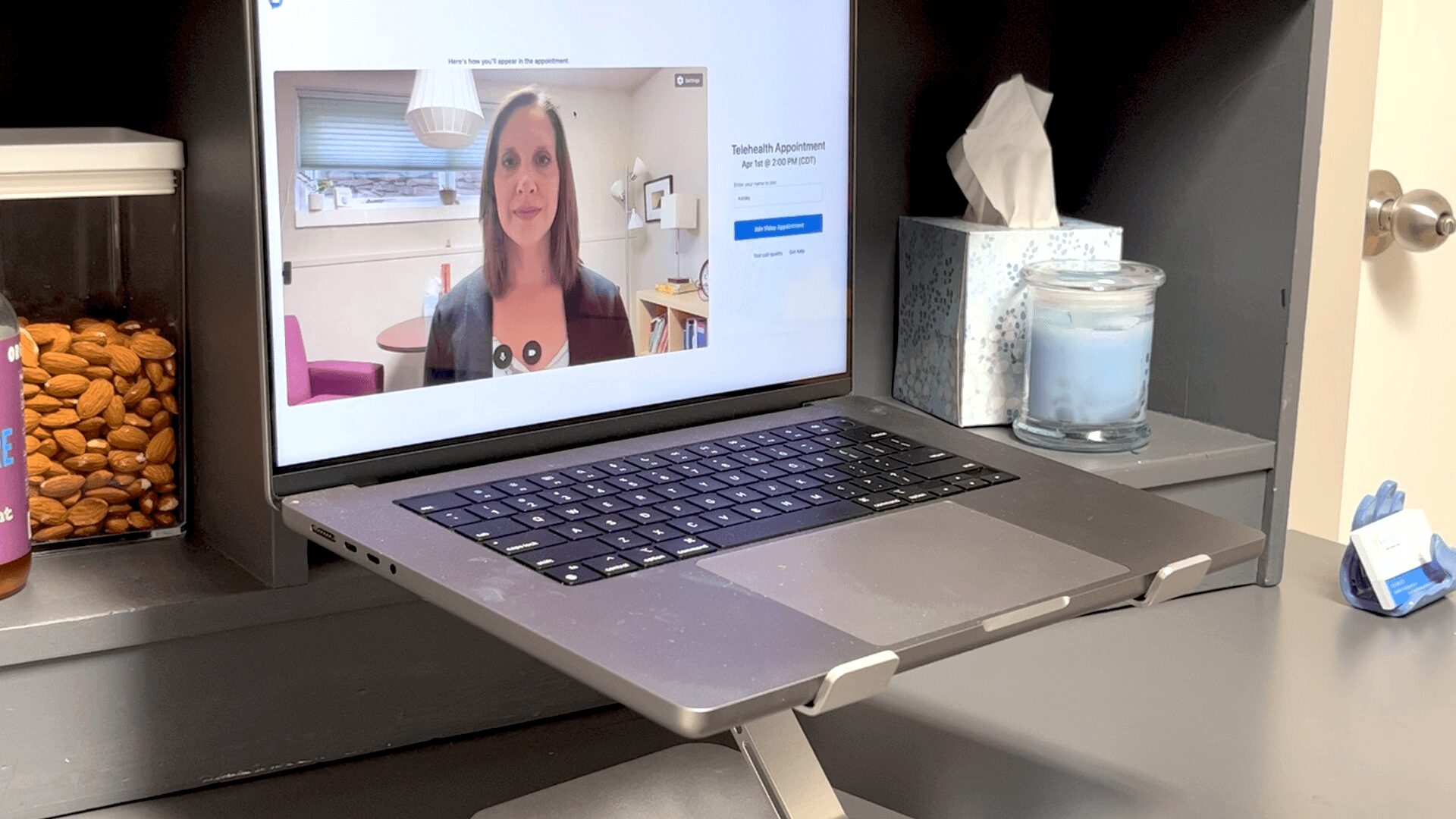
Have you ever had to pivot?
I am a big believer in adopting an experimental mindset, even when it comes to business. I have learned, time and time again, that it’s ok to not have every single step mapped out, that it’s ok to take risks, and that you will, inevitably, need to pivot.
Founding Peak Mind was a pivot away from direct patient care, which is what I had been doing as a practicing psychologist. Driven by a desire to help more people, I started to think about how I might be able to leverage my expertise in new ways. Dr. April Seifert, my dear friend and co-founder, has been instrumental in helping me embrace entrepreneurship and experimentation. When we first founded Peak Mind, we were a direct-to-consumer business, creating digital courses and content. We pivoted to a B2B model when we realized that we could have a larger impact that way. We are still feeling our way forward, experimenting and iterating, as we hone in on what really works for us and our clients.
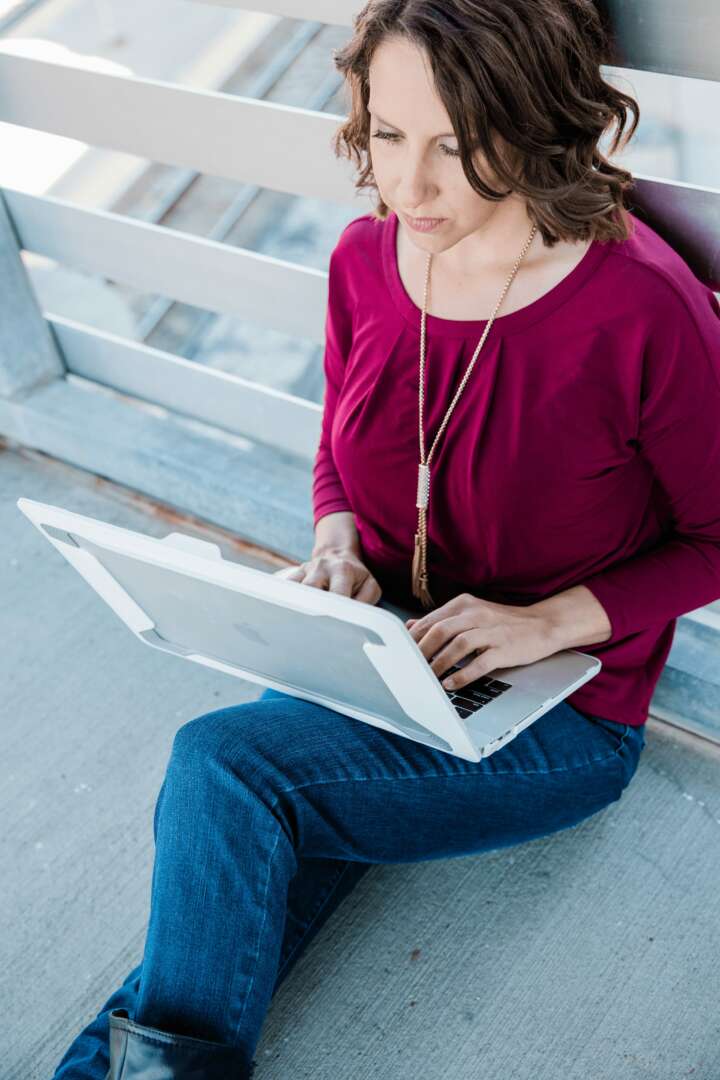
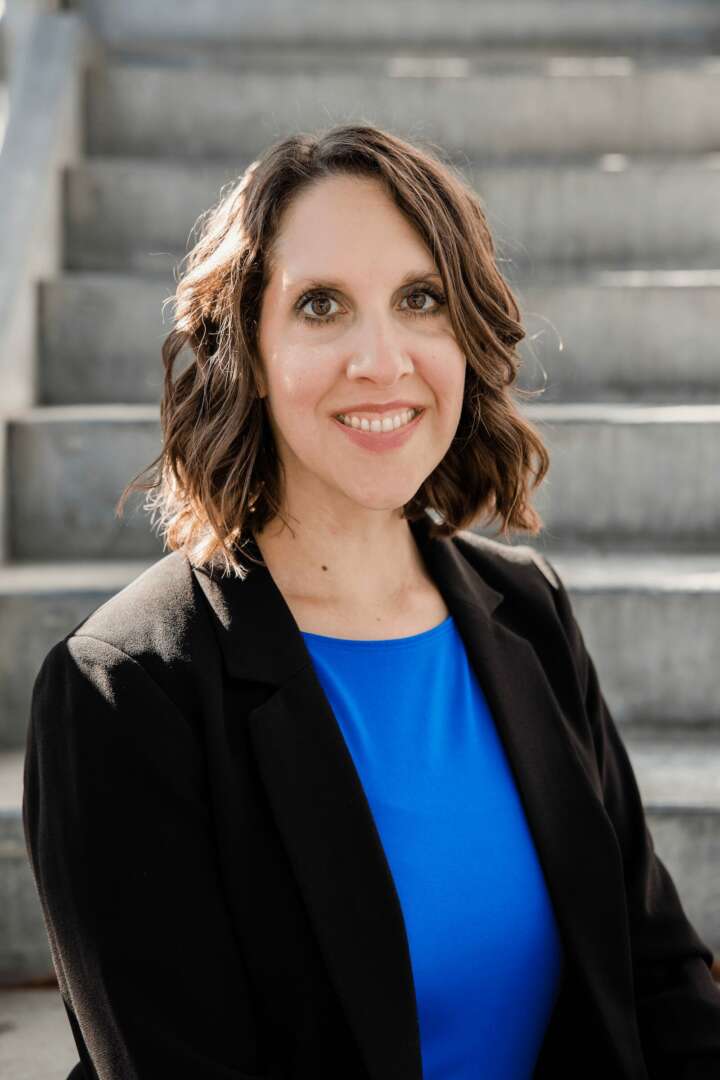
Can you tell us the story behind how you met your business partner?
April and I met in graduate school at the University of Nebraska-Lincoln, where we bonded as two of the youngest ones in the program. Fast forward a decade or so. She was doing her data analytics thing (she started a consumer insights firm called Sprocket CX), and I was in clinical practice. She launched a podcast just as I published my first blog. We started talking more regularly to help support each other in these endeavors. Through those conversations, we realized a shared passion – using what we know from psychology to help people live bigger, bolder lives while performing at their peak. That passion became a mission and led us to co-found Peak Mind.
Contact Info:
- Website: www.peakmindpsychology.com; www.drashleysmith.com
- Instagram: N/A
- Facebook: https://www.facebook.com/drashleysmith
- Linkedin: https://www.linkedin.com/in/drashleysmith/
- Twitter: https://twitter.com/drashleysmith
- Youtube: https://www.youtube.com/channel/UCNJ_XdeLjete_ucpoNyBdMA
- Yelp: N/A
- Soundcloud: N/A
- Other: TEDx Talk: https://www.ted.com/talks/ashley_smith_is_your_brain_deceiving_you
Book: https://www.drashleysmith.com/book
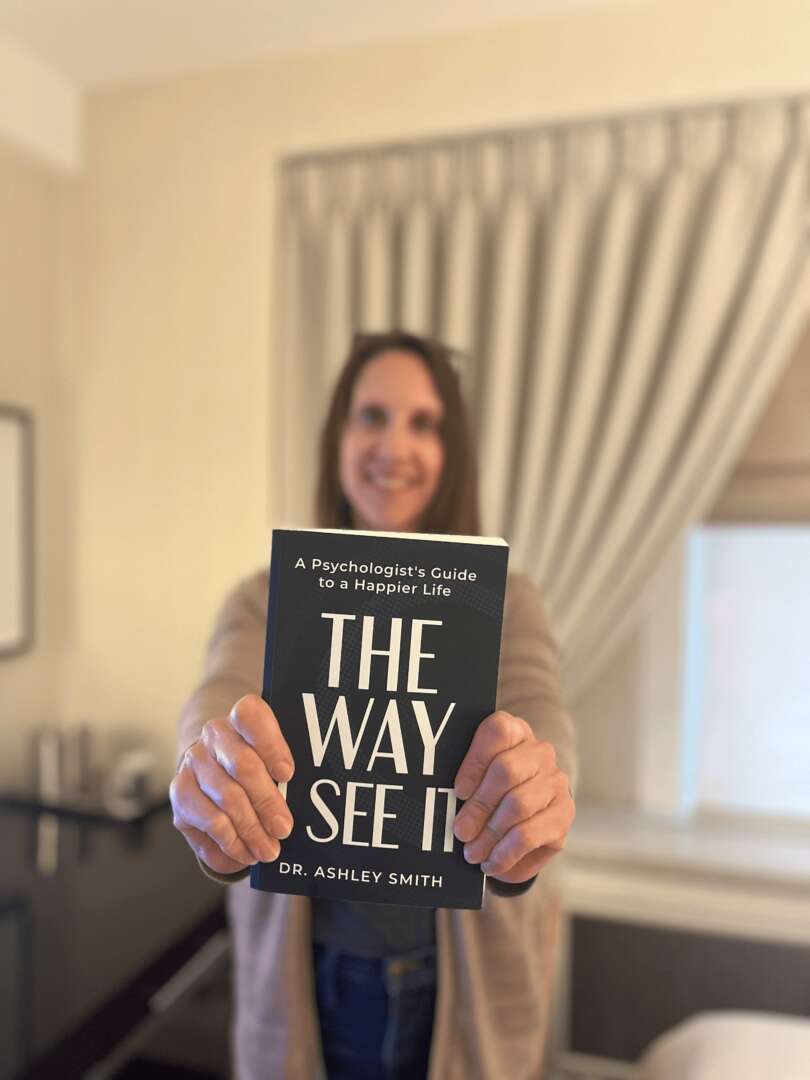

Image Credits
N/A


